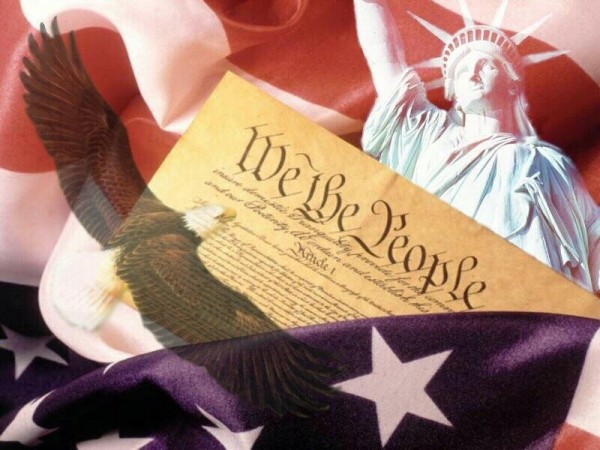Civic Illiteracy and the Two-Party System

In 2008, the Intercollegiate Studies Institute conducted a national survey testing the basic civic literacy of the American public. The poll of 2,508 individuals asked such simple questions as “What are the three branches of government?” and “What part of the government has the power to declare war?” among others, many of which were adopted from naturalization exams and high school social studies tests. Of those polled, 71% failed the test. Fewer than 50% could correctly identify the three branches of government and just 53% were able to correctly identify which branch of government has the power to declare war. Only 27% correctly stated that the Bill of Rights expressly prohibits the establishment of an official national religion. The average score on the exam was 49%.
“The results reveal that Americans are alarmingly uninformed about our Constitution, the basic functions of our government, the key texts of our national history, and economic principles,” stated the ISI's report.
Are we not thus justified in wondering to what extent such civic ignorance feeds the perpetuation of the failed Republican-Democrat two-party state? How many Americans falsely believe that the two-party system is mandated by the Constitution of the United States? How many believe that the two-party state is literally inscribed into the nation's founding documents? How many do not realize that we are not constitutionally doomed to suffer the misrule of the ruling parties?
The confusion of the so-called two-party system with the constitution of our system of government is apparent in our everyday language. It is not difficult, for example, to find numerous instances in which Americans conflate the constitutional separation of powers and the corresponding system of checks and balances with the extra-constitutional structure of the traditional party system. Ironically, it appears that this false notion has long been taught as part of the nation's basic civic literacy curriculum. In a recent letter to the editor of The Bakersfield Californian, Nancy Burnight wrote:
“I am 73 and my memory is not as good as it use to be. It does seem to me though, in civics class, we learned that one purpose of a two-party system and the Senate and House was to keep a checks-and-balances system in government.”
Mrs. Burnight is not alone in this misconception. In a letter to the editor of the Utah Standard Examiner from earlier this year, a frustrated Democrat criticized the media's failure to cover the Democratic party's state convention. She began her letter with the following lines:
“Utah will be a one-party state, without the checks and balances of a two-party system, as long as the local news media boycotts the legitimate news of the Utah Democratic Party.”
This belief is not confined to the letters to the editor section of our nation's local newspapers either. In March, Congressman Aaron Schock, the Deputy Republican Whip in the US House, endorsed a fellow Republican for a local office, stating:
“The checks and balances of the two-party system and conservative principles are exactly what Chicago, Illinois and the USA need to correct the massive deficiencies of our current government at all levels.”
Consider for a moment the implications of the apparently widespread idea that the two-party system is necessary to ensure constitutional checks and balances. Perhaps most importantly, this belief is completely false. There is no mention of any party system whatsoever in the United States Constitution. The two-party system has rather been instituted ad hoc by Republican and Democratic party lawmakers in order to hamstring any and all political opposition and ensure their continued monopoly on political power at all levels of government. Perhaps most ironically, the fact that this false belief appears to be so widespread among Republicans and Democrats themselves is highly revealing. It presupposes that neither the Republican nor Democratic party can be trusted to uphold the most basic aspects of the Constitution of the United States, namely, the separation of powers and the system of checks and balances.
As we approach Independence Day, perhaps it is only proper to reflect on the meaning of political independence and consider expressing that independence in the voting booth this year by shunning the representatives of political co-dependency.



